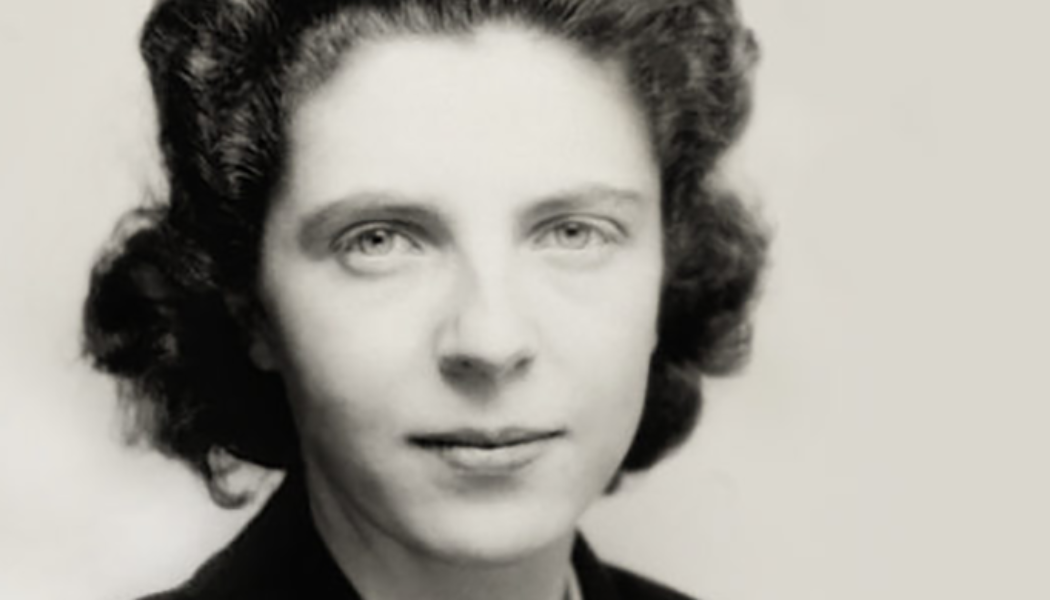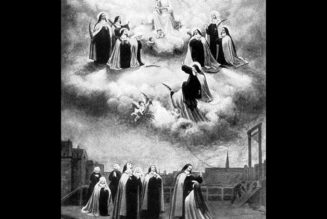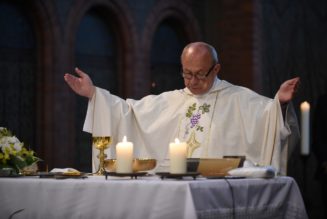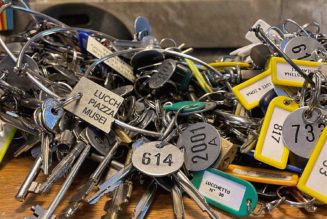
Maïti Girtanner prayed for 40 years for the power to forgive.
This is the story of a young woman, a gifted pianist, who, after the Nazi invasion of France, began to work for the Resistance. Her subsequent arrest and torture at the hands of the Gestapo left her disabled and in acute pain for the rest of her life. Needless to say, she was unable to fulfill her heart’s desire to become a concert pianist.
In the decades that followed, Maïti Girtanner, a devout Christian, struggled with the anger and the feelings of revenge with which her torture left her. Little did she know that the Nazi doctor who had tortured her had also survived the Second World War. Even less could she have anticipated that 40 years after her first encounter with the doctor their paths would cross once more.
In March 2014, an obituary appeared in The Times telling of the recent death of Maïti Girtanner. This Swiss-born woman and her story were not well-known to an English-speaking audience. That story came from another era, the painful years of the Second World War, nevertheless, the obituary told Girtanner’s story for our times. It is a tale of human suffering, and of a response to it. Her story reminds us once more of the only true “escape” from that suffering and its painful residue.
When Hitler’s army captured Paris in 1940, Marie Louise Alice Eleonore, known as Maïti, Girtanner was 18 years old. She had been born into a family of musicians. Early on she demonstrated that she, too, was a talented musician, giving her first concert aged just 9 years old. “I knew from a young age that my path had been marked out for me. I was meant to be a pianist; music was my life.”
From the summer of 1941, however, Girtanner was involved in a secret network. By then she was helping the French Resistance. She gave piano recitals for the Nazi elites then occupying France. While she did so, however, she was collecting intelligence for the French fighting the German occupation. Unexpectedly, she was arrested in October 1943. She was then taken to a detention center for captured members of the Resistance at Hendaye.
It was at this center that Girtanner was tortured by a young Nazi doctor, known as Leo. In so doing, he damaged her central nervous system. As a result, she would never again be able to play piano.
By February 1944, she was still incarcerated and barely able now to stand unaided so badly had she been treated. It was then that she was rescued from her ordeal by the arrival of the Red Cross and subsequently hospitalised.
The rest of her life was spent in chronic pain. Despite being unable to play the piano, Girtanner’s intense longing to make music once more never left her. In addition, as a result of her torture she was also denied the possibility of having a family, or leading anything like the normal life she had enjoyed prior to 1940. Slowly, the reality had dawned upon her that for the rest of her life the marks of her torture would set the limits to her physical existence.
Always devout, thereafter, she clung more than ever to her faith, becoming a Dominican Tertiary. In a letter she wrote to a friend she simply said that: “I shan’t make a tragedy of my life.”
Girtanner’s story so far is remarkable in many respects. Her life was to become more so during the years after the war when she reflected upon what had been inflicted upon her. On another level she was aware that she faced a choice: living a life of on going bitter hatred against the man who had left her disabled or to choose to forgive him. She had begun to understand that forgiveness could never be just an intellectual idea; instead, it had to be something that was directed toward someone. She wrote: “Forgiveness does not come about in the abstract; it calls for someone to whom it can be addressed, someone to whom it can be received.” She began to pray for her captors and, in particular, for the young doctor who had tortured her.
In 1984, as unexpectedly as her arrest in 1943, Girtanner was contacted by Leo, the former Nazi doctor.
Leo was now elderly and ill. Having recently been diagnosed with a terminal illness, he feared death. He remembered the young Christian woman who, even while he tortured her, had clung to her belief in God and a heaven. Leo wrote asking if Girtanner still believed in such things. She wrote back and told him she still believed. This led to further communication, not least about what had occurred between them some 40 years earlier. Leo set out to visit Girtanner.
What painful memories their correspondence must have caused Girtanner, one can only guess at the thoughts and emotions that she experienced while she awaited her visitor. Yet, maybe, she also knew that this second encounter would be as decisive for both her and Leo as had been their first 40 years earlier.
When the former doctor arrived at the home of his former “patient,” he begged her forgiveness. She took his head in her hands and kissed it. Then while embracing him, she forgave him.
Later of that moment she said: “I embraced him to drop him into the heart of God. And [as I did so] he murmured: ‘Forgive me.’”
Whatever gift was given to Leo that day, another greater one was given to Girtanner. She had prayed for 40 years for the power to forgive. Because she knew that, by that act, she too would be set free. Of that day she would later say: “Forgiving him liberated me.”
In that wholly unforeseen encounter in 1984, the prayers of Maïti Girtanner were strangely answered.
Join Our Telegram Group : Salvation & Prosperity









